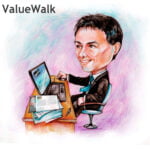Nintendo And Pokemon GO: A Lesson On Behavioral Investing
There is a famous investment tip that says, “Buy the rumor, sell the news.”
Stocks sometimes trade higher (or lower) heading into “major” news announcements before reversing course immediately following the event.
Anticipated market-moving news items can include quarterly earnings reports, business rumors, macroeconomic trends, new product launches, and more.
Not surprisingly, there is typically a lot of hype leading up to such an event, and hype often results in emotionally-charged trading decisions.
Nintendo’s stock provided the latest example.
Until very recently, Nintendo’s stock floundered for a number of years as the rise of mobile gaming challenged demand for traditional video gaming.
On July 6, 2016, Pokemon Go was released and took the world by storm.
For those who are unfamiliar, Pokemon Go is a location-based augmented reality game played on smartphones. Players walk around in the real world to capture and battle virtual “monsters” (Pokemon). The game is free to download but has in-app purchases.
Pokemon Go has since been downloaded more than 75 million times worldwide, making it the all-time most popular app launch.
Nintendo bulls finally had a reason to cheer the company’s stock. In less than 10 trading days, Nintendo’s market value more than doubled and pushed its stock price to a five-year high:
Followers of Warren Buffett very well know that a stock’s price is not always correlated with a company’s intrinsic value.
Deutsche Bank analyst Han Joon Kim was quick to get at this point after Nintendo’s surge in price. Here is what he said in a note:
“Pokemon Go is a genuine phenomenon – just after a little over a week, it has added $19 billion to the value of Nintendo. The market is now valuing Nintendo … on a par with global leaders such as Electronic Arts and Activision Blizzard that respectively have 5% global video game market share vs. Nintendo’s current 2%.”
It’s hard to imagine a single mobile game making a company worth $19 billion more than it was prior to the game being released.
The entire mobile gaming industry itself is less than $40 billion in size, and it’s very difficult for a popular smartphone game to stay at the top of leader boards due to the fickle nature of consumer preferences and the constant stream of new games hitting the market.
Pokemon Go was said to be making more than $10 million per day, but this is a relatively small drop in the bucket compared to Nintendo’s nearly $5 billion in total annual sales.
Just when investors seemed to think Pokemon Go could jumpstart Nintendo’s earnings, the company issued a statement that caught many speculators off-guard.
Sure enough, Nintendo said it expects Pokemon Go’s impact on its business results to be “limited.”
What do you think happened to the company’s stock?
It immediately cratered more than 30% from its high over the following week.
[drizzle]Source: Simply Safe Dividends
Lessons Learned from Pokemon Go
Investors shouldn’t follow every piece of investment advice that they hear. Trying to “buy the rumor and sell the news” is not investing – it’s speculating.
In most cases, no one knows if a company’s anticipated news will be a positive surprise or a disappointment.
Instead, speculators (whether they know it or not) are playing a game of hot potato, hoping to find a greater fool they can dump their stock to for a quick buck before they potentially get burned themselves.
Seeing a stock rise rapidly in price can make us feel like we are missing out on easy money. There is a great urge to get in on the action.
However, chasing short-term profits and caving in to our emotions creates an environment in which we are most at risk of making poor decisions and losing money.
Instead, we should stay committed to a long-term investment plan focused on owning high quality dividend growth stocks trading at reasonable prices.
[/drizzle]











